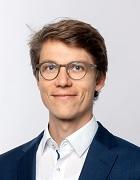Physikalisches Kolloquium: Prof. Dr. Johannes Knolle - Anomalous Quantum Oscillations in Metals and Insulators
TU München
In diesem Vortrag werde ich die jüngsten Entwicklungen diskutieren, die die kanonische Beschreibung von Quantenoszillationen in Frage stellen. Ich werde zunächst einen Überblick über unsere Arbeit zu Quantenoszillationen in Isolatoren geben. Anschließend werde ich die Möglichkeit scharfer Quantenoszillationsfrequenzen in Metallen, die nicht den Bahnen der Fermi-Oberfläche entsprechen, sowie die Auswirkungen starker Elektronenwechselwirkungen erörtern. Abschließend werden experimentelle Ergebnisse vorgestellt, die unsere theoretischen Vorhersagen bestätigen, und die weitergehenden Auswirkungen anomaler Quantenoszillationen diskutiert.
Anomalous Quantum Oscillations in Metals and Insulators
Quantum oscillation phenomena describe the periodic variation of thermodynamic and transport properties of materials as a function of magnetic field. Since their discovery in 1930, their observation is commonly assumed to be a definite sign for the presence of a Fermi surface (FS) in a metal. Indeed, the effect forms the basis of a well-established experimental procedure for accurately measuring FS topology and geometry of metallic systems.
In this talk, I will discuss recent developments which challenge the canonical description of quantum oscillations. I will first review our work on quantum oscillations in insulators. Next, I will discuss the possibility of sharp quantum oscillation frequencies in metals which do not correspond to Fermi surface orbits and the effect of strong electron interactions.
Finally, I will present experimental results confirming our theoretical predictions and discuss the broader implications of anomalous quantum oscillations.
Zeit & Ort
05.05.2023 | 15:00 c.t.
Hörsaal A (1.3.14)
Weitere Informationen
Gastgeber
Schlagwörter
- Elektronenwechselwirkungen
- Fermi-Fläche
- Isolatoren
- Johannes Knolle
- Magnetfeld
- Metalle
- Physik der kondensierten Materie
- Quantenoszillationen
- Thermodynamik
- TU München
